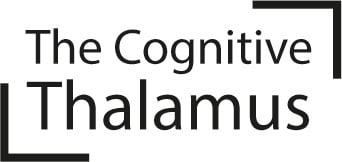 This is a vibrant time to talk about the thalamus, in view of the explosion of researches focusing on new thalamic roles in the cognitive field. Our satellite meeting is organized in the spirit of bringing together research colleagues who are interested in the thalamus and investigate its role in cognition, especially through its interactions with the hippocampal formation and prefrontal areas, its contribution to cognitive and behavioral brain functions and/or dysfunctions; and as a treatment target for neurological and psychiatric diseases. Our satellite meeting will thus draw attention to the role of the thalamus and medial diencephalon in higher cognitive functions, and help to disseminate novel ideas and evidence about thalamic functioning and provide networking opportunities for colleagues to build collaborations.
This is a vibrant time to talk about the thalamus, in view of the explosion of researches focusing on new thalamic roles in the cognitive field. Our satellite meeting is organized in the spirit of bringing together research colleagues who are interested in the thalamus and investigate its role in cognition, especially through its interactions with the hippocampal formation and prefrontal areas, its contribution to cognitive and behavioral brain functions and/or dysfunctions; and as a treatment target for neurological and psychiatric diseases. Our satellite meeting will thus draw attention to the role of the thalamus and medial diencephalon in higher cognitive functions, and help to disseminate novel ideas and evidence about thalamic functioning and provide networking opportunities for colleagues to build collaborations.
Registration is now closed
Venue:
Amphitheatre of the Pierre-Gilles de Gennes Institut (IPGG), Paris
6 Rue Jean Calvin, 75005 Paris, France
Organizers:
– Mathieu Wolff : INCIA (Institut des Neurosciences Cognitives et Intégratives d’Aquitaine), Bordeaux
– Jean-Christophe Cassel / Anne Pereira de Vasconcelos : LNCA (Laboratoire de Neurosciences Cognitives et Adaptatives), Strasbourg
– Gisella Vetere : ESCPI (École supérieure de physique et de chimie industrielles), Paris
– Sébastien Parnaudeau : Sorbonne Université, UMR8246, UM119, UMRS1130, Institut de Biologie Paris Seine
Program
Junior speakers marked with *
9:00 Welcome
S1. Neuroanatomy of thalamic circuits: Chair Acsady
Francisco Clasca (Spain)
The single-cell level organization of thalamic output pathways
Nóra Hádinger* (Hungry)
Selective cortical control of TRN from the frontal cortex
Cesar Porrero* (Spain)
The functional logic of higher-order thalamocortical axon branching to multiple areas
Robert Vertes (USA)
Projections from the orbital cortex to the midline thalamus, with functional considerations
10:20-10:45 Coffee break
S2. Emotion, attention & decision: Chair Wolff
Helen Barbas (USA) / Basilis Zikopoulos (USA) (shared presentation)
Pathways for content, context, and emotions through the primate dorsal thalamus and the thalamic reticular nucleus
Sarah Morceau* (France)
Exploit or explore? Thalamocortical circuits for deciding in dynamic environments
Mike Halassa (USA)
Thalamocortical interactions in flexible cognitive control
Anna Mitchell (New Zealand)
The mediodorsal thalamus and cardiovascular and olfactory processing
12:00-13:30 Lunch Break
S3. Learning & memory: Chair Pereira de Vasconcelos
Aline Stephan (France)
Do the reuniens/rhomboid nuclei participate in encoding contextual and spatial memories?
Bianca Silva (Italy)
Thalamic circuits for fear memory attenuation
Gisella Vetere (France)
Thalamic involvement in the consolidation of long-lasting spatial memories
Belen Pardi (Germany)
A thalamocortical top-down circuit for associative memory
14:40-14:50 Quick break
S4. Thalamus, sleep & beyond: Chair Cassel
Antoine Adamantidis (Switzerland)
Optical dissection of thalamic implication in sleep structure and functions
Michal Milczarek* (UK)
The dynamics of hippocampal-mammillary body activity across the sleep-wake cycle
Didier Pinault (France)
The thalamic reticular nucleus, sleep and schizophrenia
14:45-15:10 Coffee break
S5. Focus on the human & NHP thalamus: Chair Barbeau
Melanie Wilke (Germany)
Contributions of the pulvinar to transform perception into actions
James Perry* (UK)
Anterior thalamic pathology in Down syndrome
Giulio Pergola (Italy)
The human thalamus in cognition
Shirin Mahdavi* (Germany) PhD
Thalamic Contributions to Internal Models for Motor Control
Csaba Dávid* (Hungary)
Morpho-functional segmentation of the human thalamus linked to the frontal cortex using the combination of cell types and afferents
Lola Danet* (France)
Impact of unilateral thalamic infarct involving the mediodorsal nucleus on the functional connectivity of humans
Future plans

